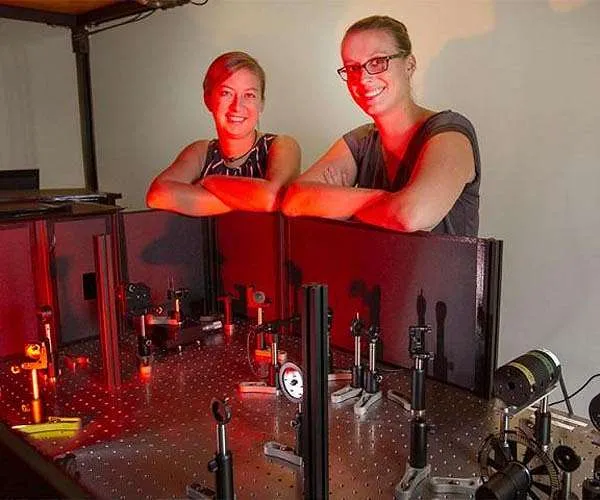FSU researchers explore material residential properties for longer-lasting, extra reliable solar cells
- The developers of solar cells know their creations have to emulate a variety of temperatures and all sorts of weather conditions - problems that can influence their efficiency and helpful lifetime.

Florida State University Assistant Professor of Chemistry and Biochemistry Lea Nienhaus and also previous FSU postdoctoral researcher Sarah Wieghold are aiding to understand the essential processes in a product called perovskites, job that could bring about extra reliable solar cells that likewise do a better work of withstanding destruction. They found that little tweaks to the chemical makeup of the products along with the size of the electric field it is revealed to can considerably affect the overall material security.
Their most current work is released in a set of research studies in Journal of Materials Chemistry C as well as Journal of Applied Physics.
Their study is concentrated on boosting the possibility of perovskites, a material with a crystal structure based upon positively charged lead ions called cations as well as adversely billed halide anions. In a cubic perovskite crystal structure, the octahedra developed by the lead and also halide ions are bordered by added positively billed cations.
The initial perovskite solar cells, which were established in 2006, had a solar energy power conversion effectiveness of concerning 3 percent, yet cells established in 2020 have a power conversion efficiency of greater than 25 percent. That quick increase in effectiveness makes them an encouraging material for additional study, but they have downsides for commercial practicality, such as a propensity to deteriorate swiftly.
" How can we make perovskites much more stable under real-world conditions in which they'll be made use of?" Nienhaus stated. "What is creating the deterioration? That's what we're attempting to comprehend. Perovskites that do not break down quickly could be a beneficial tool for obtaining even more energy from solar cells."
Perovskites are a supposed "soft material," despite the ionic bonds of the crystal latticework that comprise their framework. The halides or cations in the material can relocate through that lattice, which may boost their price of deterioration, resulting in an absence of lasting security.
In the Journal of Materials Chemistry C paper, the researchers examined the mixed influence of light and also elevated temperature level on the performance of mixed-cation mixed-halide perovskites.
They found that including a percentage of the component cesium to the perovskite movie enhances the security of the product under light as well as raised temperature levels. Including rubidium, on the other hand, brought about worse efficiency.
" We located that depending on the selection of the cation, two paths of destruction can be observed in these products, which we then associated to a decrease in performance," claimed Wieghold, currently an assistant scientist at the Center for Nanoscale Materials and also the Advanced Photon Source at Argonne National Laboratory. "We likewise showed that the addition of cesium boosted the film security under our screening conditions, which are really encouraging outcomes."
They likewise found that a decrease in film performance for the less stable perovskite combinations was associated with the formation of the substance lead bromide/iodide as well as an increase in electron-phonon communications. The development of lead bromide/iodide is because of the undesirable deterioration mechanism, which needs to be stayed clear of to attain long-term stability and also performance of these perovskite solar cells.
In the Journal of Applied Physics paper, they explored the link between voltage and the performance of perovskite products. This revealed that the ion motion in the product transforms the underlying electric response, which will be a vital consider the photovoltaic or pv performance.
"Perovskites offer a great opportunity for the future of solar cells, as well as it's amazing to help move this scientific research onward," Nienhaus stated.
Also read

